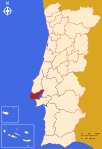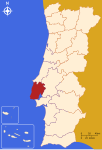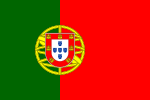Estado Novo (Portugal)

The Estado Novo (Portuguese pronunciation: [(ɨ)ʃˈtadu, -ðu ˈnovu], lit. "New State") was the corporatist state installed in Portugal in 1933. It evolved from the Ditadura Nacional ("National Dictatorship") formed after the coup d'état of 28 May 1926 against the democratic and unstable First Republic. Together, the Ditadura Nacional and the Estado Novo are recognised by historians as the Second Portuguese Republic (Portuguese: Segunda República Portuguesa). The Estado Novo, greatly inspired by conservative and autocratic ideologies, was developed by António de Oliveira Salazar, who was President of the Council of Ministers from 1932 until illness forced him out of office in 1968. The Estado Novo was one of the longest-surviving authoritarian regimes in Europe in the 20th century. Opposed to communism, socialism, syndicalism, anarchism, liberalism, and anti-colonialism, the regime was conservative, corporatist, and nationalist in nature, defending Portugal's traditional Catholicism. Its policy envisaged the perpetuation of Portugal as a pluricontinental nation under the doctrine of lusotropicalism, with Angola, Mozambique, and other Portuguese territories as extensions of Portugal itself, and it being a supposed source of civilization and stability to the overseas societies in the African and Asian possessions. Under the Estado Novo, Portugal tried to perpetuate a vast, centuries-old empire with a total area of 2,168,071 square kilometres (837,097 sq mi), while other former colonial powers had largely already acceded to global calls for self-determination and independence.Portugal joined the United Nations (UN) in 1955 and was a founding member of NATO (1949), the OECD (1961), and EFTA (1960). In 1968, Marcello Caetano was appointed the new head, and he continued to pave the way towards economic integration with Europe, achieving the signature of the free trade agreement with the European Economic Community in 1972. From 1950 until Salazar's death in 1970, Portugal saw its GDP per capita increase at an annual average rate of 5.7 per cent. Despite the remarkable economic growth, and economic convergence, by the fall of the Estado Novo in 1974, Portugal still had the lowest per capita income in Western Europe as well as the highest rate of preventable deaths and infant mortality rate in Europe. On 25 April 1974, the Carnation Revolution in Lisbon, a military coup organized by left-wing Portuguese military officers – the Armed Forces Movement (MFA) – overthrew the Estado Novo regime.
Excerpt from the Wikipedia article Estado Novo (Portugal) (License: CC BY-SA 3.0, Authors, Images).Estado Novo (Portugal)
Rua da Junqueira, Lisbon Alcântara (Alcântara)
Geographical coordinates (GPS) Address Nearby Places Show on map
Geographical coordinates (GPS)
| Latitude | Longitude |
|---|---|
| N 38.7 ° | E -9.1833333333333 ° |
Address
Rua da Junqueira (Centro de Congressos)
Rua da Junqueira
1300-343 Lisbon, Alcântara (Alcântara)
Portugal
Open on Google Maps











